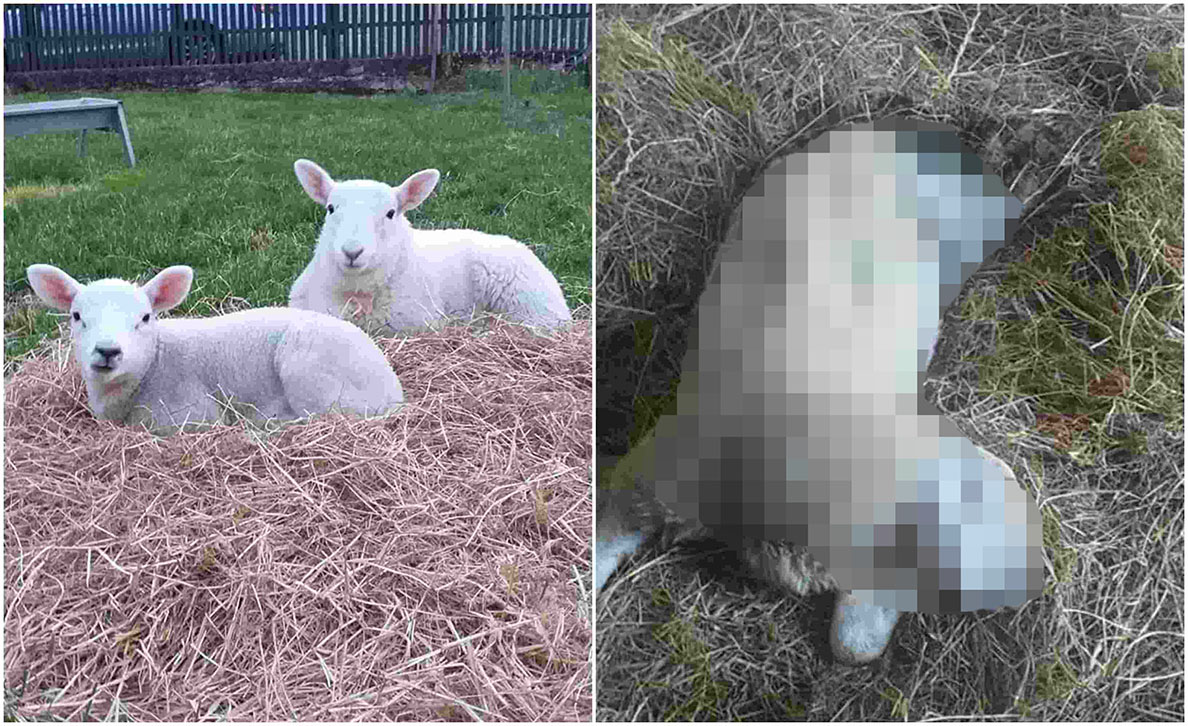
A Moy woman has branded those responsible for dumping grass cuttings in a field with two lambs as “idiots” after they passed away.
Jenny Millar slammed the irresponsible perpetrators after the cuttings contributed to the death of “two of the most gorgeous wee lambs you’d ever come across”.
“Unfortunately, due to someone dumping grass clippings in my field these two beautiful babies are now dead,” she posted.
“Brown bins are provided for a reason and that reason is to dispose of your garden waste properly.
“I put so much love, time and money into raising these babies, and now I’m left with a ewe who’s fretting like mad because she has no company.
“I’ve had to foot the bill to look after them; to try and save them, and to take them to Linergy (stock disposal) and now to replace them all because some idiot decided to dump their grass in the field.”
Ms Millar said the lambs would not have experienced a quick death but rather a “very long and drawn out” passing.
“They literally waste away before they die,” she explained. “Please, please DO NOT DUMP GARDEN WASTE NEAR LIVESTOCK.
“I am not a commercial sheep farmer; I raise orphan lambs as pets.
“They’re as much part of my family as my dogs, it’s the fact of watching something I’ve nurtured, have to go through pain and suffer a horrific death that kills me, trying my best to nurse them back to good health and it not working – it’s heartbreaking.
“This was done by somebody in Moy Demesne; the new housing estate on Killyman Street.”
Feeding livestock, such as sheep, lambs or horses on fresh lawn mower clippings can be very dangerous for several reasons, according to the RSPCA.
When lawn mower clippings are fresh they are fermenting (this is why they are warm or even hot when you put your hand inside a fresh pile of clippings).
If a horse is given a pile of fresh clippings to eat he/she can gorge on them. As the clippings have been chopped up small (by the mower) the horse does not need to chew them and therefore swallows the clippings without mixing them with saliva (which is what happens when a horse chews its food normally).
This means that the clippings arrive in the stomach already fermenting and without the benefit of saliva to ‘dilute’ them (in the normal situation grasses that are eaten by the horse do not start to ferment to this extent until they are much further along in the gut).
The gases given off by the fermenting clippings can expand to the point that they rupture the stomach (which is fatal).
If the clippings do not cause rupture of the stomach, they can result in colic (abdominal pain) due to complications further down the intestinal tract.



